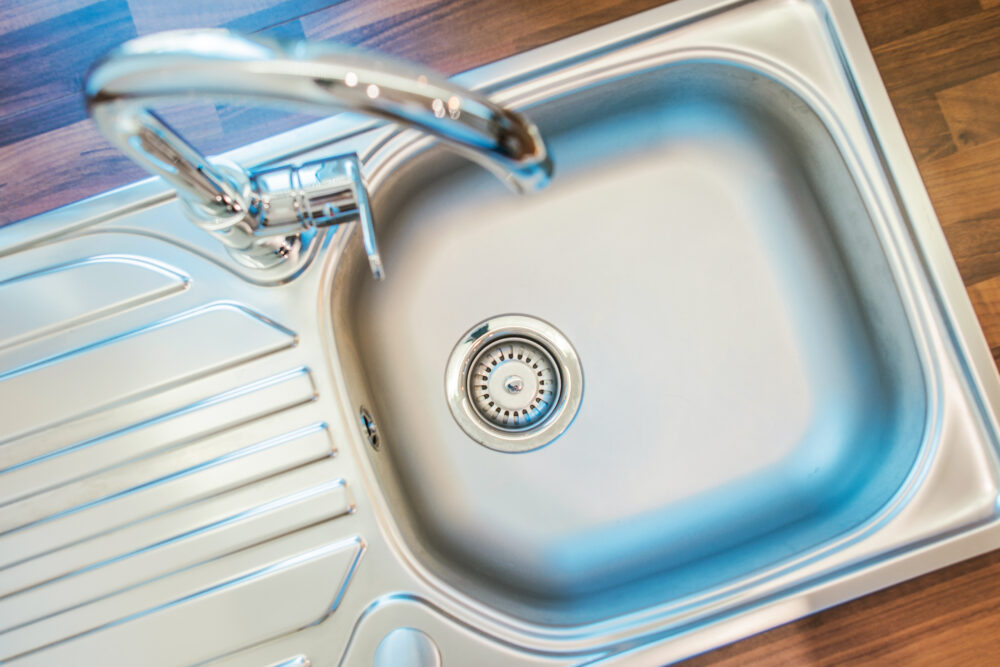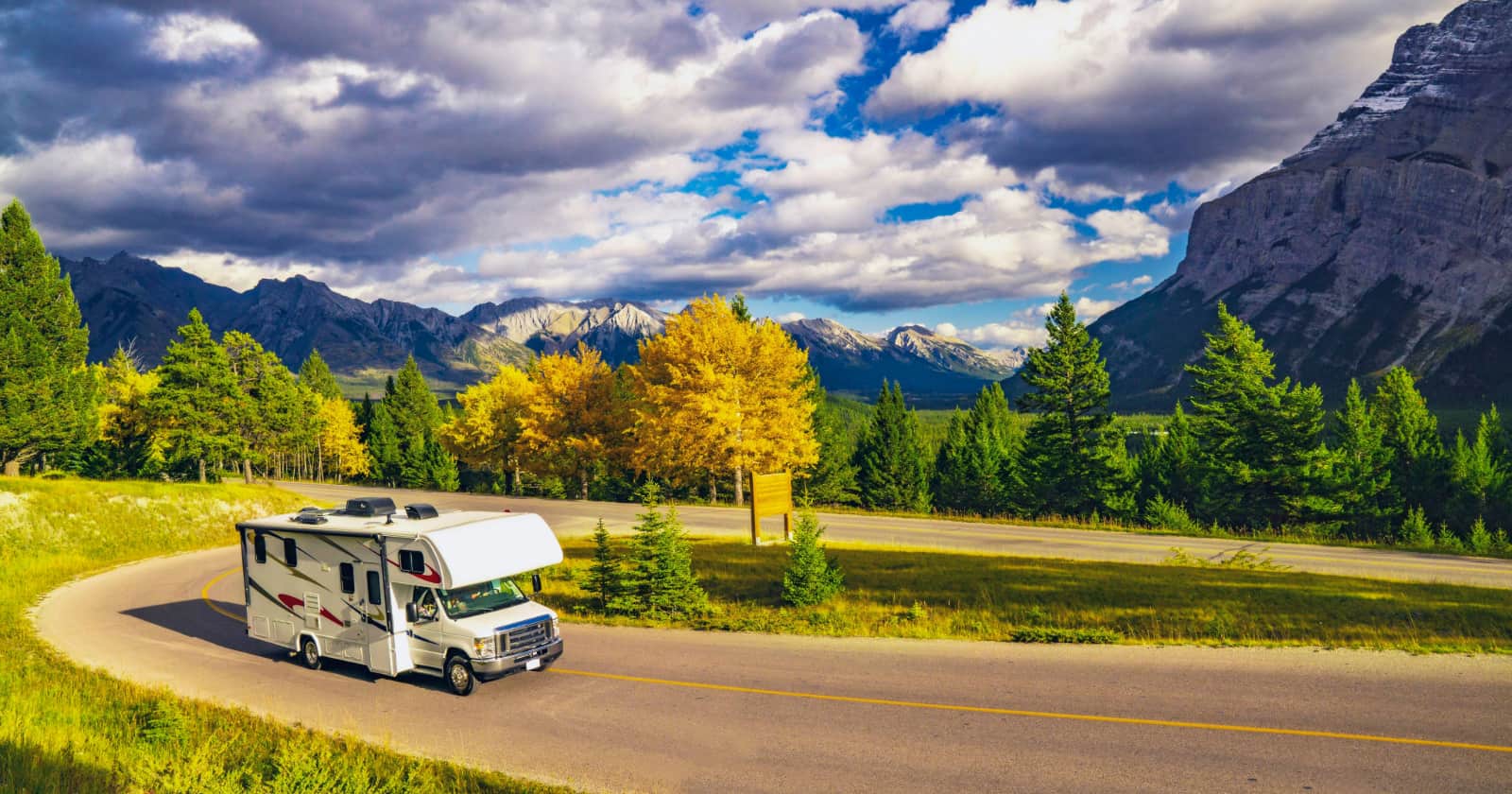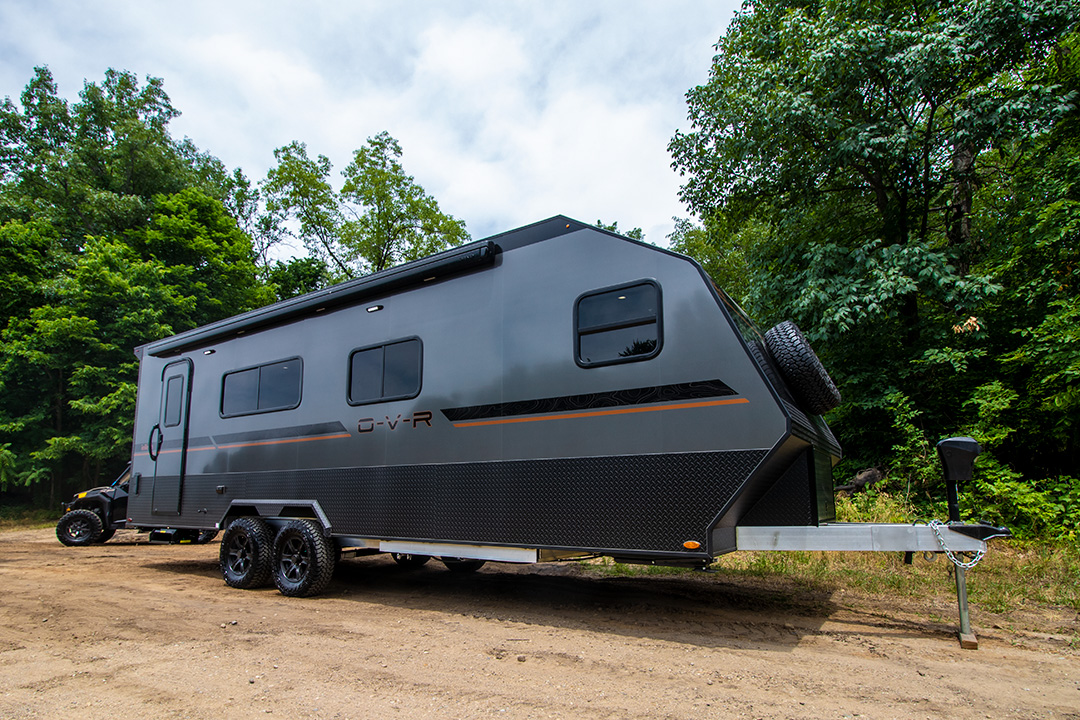
Is Your Campground Water Contaminated?
When you travel, it’s important to have a good source of potable water. Many people travel with full fresh water tanks, while others might stock up on their favorite brand of bottled water. But if you rely on the campground water when you set up your campsite, you might notice that it smells, looks, or tastes strange. Those could be warnings signs of contamination!
Contaminated water is no joke. Apart from tasting bad, it can lead to serious health issues if you ingest it. Bacteria, fungus, chemicals, and sediment can cause illness and other harmful effects. But it’s not always easy to tell if water is safe to drink or not.
In order to safely cook, clean, and drink water around your campsite, you’ll need a reliable source of potable water. You might be able to use the campground water for these requirements, but always make sure that it’s safe before you proceed. In this guide, we’ll walk you through some of the warning signs of contamination, as well as ways you can purify water before you use it.
Telltale signs of contaminated water
Everyone knows that it’s not very safe to drink water straight from a stream or even a drinking hose. But sometimes it’s not even safe to drink from a campground faucet or an RV water hookup.
A filtration system in your RV can catch most of these problems before they reach you, but even they aren’t perfect. Strains of E-coli have shut down entire campgrounds, and that’s just one thing that could be infecting your drinking water.
There are lots of opportunities for water to become contaminated, so you need to keep a lookout for these warning signs.
1. Sudden bouts of sickness
You can become sick for all sorts of reasons, but contaminated campground water could be the culprit. Waterborne diseases, dangerous bacteria, and foreign contaminants can make you feel sick within a matter of days or even hours. If you have recently moved to a new campsite and started feeling sick, you may want to switch your source of drinking water.
In extreme cases, you might develop dysentery. This is a dangerous infection of the intestines, and it can often come from drinking untreated water. Look out for symptoms such as:
- Diarrhea
- Bloody stools or urine
- Fever
- Headaches
- Fatigue
- Nausea
- Vomiting
- Abdominal cramping
- Weight loss
Hopefully you’ll never drink water that’s dangerous enough to cause these symptoms, but it’s important to be aware of the possibility.
2. Weak water pressure
Another potential sign of contaminated water is weak water pressure. If you have been parked at the same campsite for a while, you may notice that your faucets are producing a weaker and weaker flow over time. This may be due to internal scaling or hardwater deposits.
This type of contamination usually isn’t too dangerous, but it can make your water develop a strange taste. Plus, it can leave annoying stains on your sinks, faucet heads, and silverware.
3. Strange smells
Another telltale sign to watch out for is the smell. When you pour water or let it flow through the faucet, take a few deep sniffs to see if anything smells strange. One common contaminant is chlorine. In small doses, this can be used to kill harmful bacteria in the water supply, but it can also make your water taste and smell bad if the levels are too high.
Another common odor is the bad egg smell, which comes from dissolved sulfur. This might come from a local water source, but it could also be a sign that the anode rod in your water heater needs to be replaced. Small quantities of sulfur aren’t dangerous, but it’s not pleasant to drink either.
4. cloudy/bubbly water
Ideally, you would want your water to be calm and crystal clear. But when you connect to a campground water source, you may notice that the water seems extra bubbly. This could be because of high water pressure and dissolved oxygen, but watch the water once it settles.
If the water stays cloudy, this could be a sign that something else is going on. Water that’s cloudy or foamy might have dissolved minerals that are causing this effect. Again, it might not be dangerous, but you should still be cautious.
5. Discoloration
This is one of the most obvious signs that there’s something going on with your water. Watch out for liquid that has an orange or brownish hue. This could indicate that there’s rust or other metals in the water supply.
If you’re close to a mining operation, that could be another factor. Chemicals and runoff could create this effect too. Avoid discolored water as much as possible because you don’t know what else could be hiding behind the dye.
6. Visible sediment in the water or sink
If you’re getting your water from a lake, stream, or another natural water source, you may notice sediment in the water. This creates a grainy, cloudy effect. If you give it time to settle, there may even be a layer of dirt at the bottom of your glass.
Most filters and water treatment plants will remove large particles like this. So if you see visible debris in your water, that’s a sign that something worse could have slipped through. Plus, nobody really wants to drink dirty, gritty water anyway!
7. Film on the water surface
While you search for settling debris, you should also look at the surface of the water. An oily film is always a bad sign. This means that some kind of chemical or grease is contaminating your water. If there’s a non-soluble compound in your campground water, it’s probably not safe to drink.
You could try to skim the surface to remove this layer, but it’s usually safer to just dump the whole thing and look for a better water source.
8. Odd taste
Finally, pay attention to how the water tastes. Everywhere you go, the water will probably have a slightly different flavor. Sometimes it might seem a bit sweet, or bitter, or strangely sterile! But you should watch out for water that has a particularly strong or strange taste to it.
For instance, contaminated water might be metallic on your tongue. Or if it has been affected by aquatic life, maybe there’s a fishy taste. Avoid water that is overly salty, bitter, or chemical-tasting as well.
Sometimes it can be hard to identify these flavors if the water is chilled or if you drink too fast. Try to take a moment to swish it around and see if something tastes unusual. If so, spit it out and investigate more closely.
How to treat campground water
Water can be contaminated from a variety of sources. For instance, groundwater can pick up sediment and organic debris. Runoff can mix in dangerous chemicals, sewage particles, and fertilizer. Faulty infrastructure can leach minerals and metals into the water supply as well.
Whatever the source may be, you may need to take things into your own hands to treat campground water and make it safe to drink. Depending on what the problem is, here are a few purification options you can try:
- Boil the water
- Let the sediment settle and skim the surface
- Install an RV water filtration system and change the filter regularly
- Use water purification tablets
- Use UV light to kill harmful bacteria and algae
- Bring your own bottled water to the campsite
Get tips from other RVers
One of the best parts about RVing is engaging with the community of traveling enthusiasts. iRV2 forums allow folks to chat with other RVers online, and get other perspectives on everything RVing, including products, destinations, RV mods, and more.
Related articles:




I don t care where you camp dont drink the water buy you water .We lived 5 years.on à campground in Quebec we use the water for everything but don t drink it we use the big 18.litter.bottle whith à pump ( that s my story)
Good article. My request for this article and other like articles is to make these printer friendly. Because of all the ads and videos it makes for 14 pages and sloppy printing.
I like to print these for people that may be using our rv as a way to inform them of dangers.